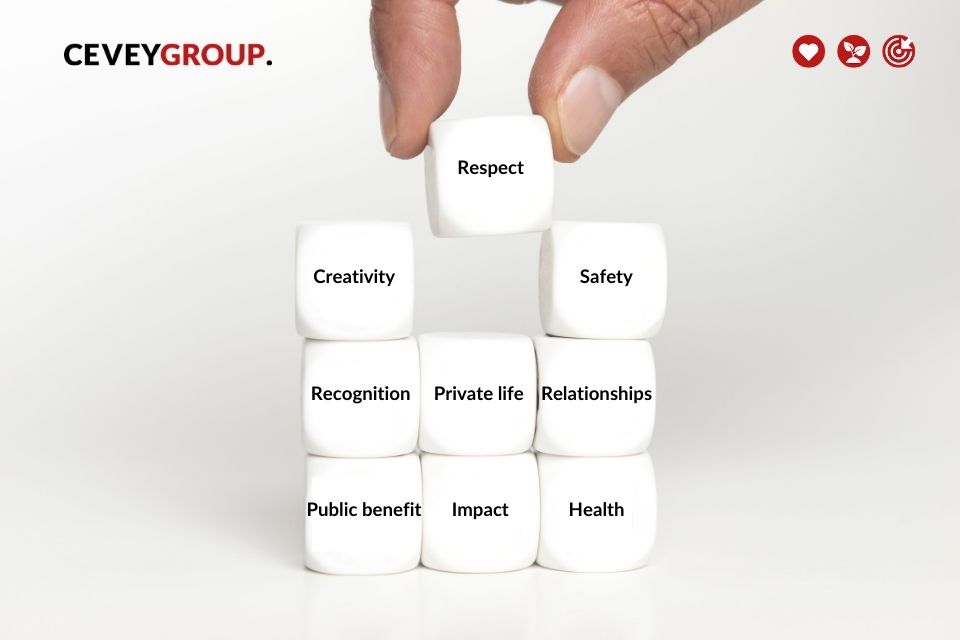Every society, every company, every gathering of people needs values. But what are values?
In organizations, we often talk about values; after all, everyone knows what is meant. But the concept of values is by no means clearly defined. (In fact, the concept of values would have to be redefined every time we talk about them).
John Erpenbeck, Roman Sauter and Werner Sauter have developed a value model on the basis of condensed scientific surveys in which people were asked to state what is important to them.
This model comprises 16 values, whereby these are completely equal:
1. Pleasure values
a. Creativity (being able to develop one’s own creative abilities)
b. Health (staying fit through physical and mental balance)
c. Education (to expand one’s knowledge and skills)
d. Individual freedom (to have personal freedom)
2. Benefit values
a. Standard of living
b. Safety (material and professional)
c. Recognition (performance should be rewarded)
d. Public benefit (the value I create should also benefit the team and the organization)
3. Ethical values
a. Private life (my private concerns should be taken into account)
b. Ideals (being able to follow one’s own ideals)
c. Responsibility (acting responsibly)
d. Respect (eye level and mutual support)
4. Social values
a. Relationships (friendly and amicable interaction)
b. Influence (being able to make a difference)
c. Norm and law (knowing rules and acting according to them)
d. Network (have contacts and make new ones)
Are you surprised? Would you have defined the same values for yourself?
Important: There are no better or worse values, rather their meaning is different for each person and each context. Therefore, when we work with values, we always need to clarify the meanings first.
In fact, value questions like “what is important to you in working with me?” are among the most interesting, activating and opening questions of all.
Try it out!
Author: Johanna van Staa, Senior Manager CEVEYCONSULTING
#CEVEYGROUP #leadership #values #valuemodel

